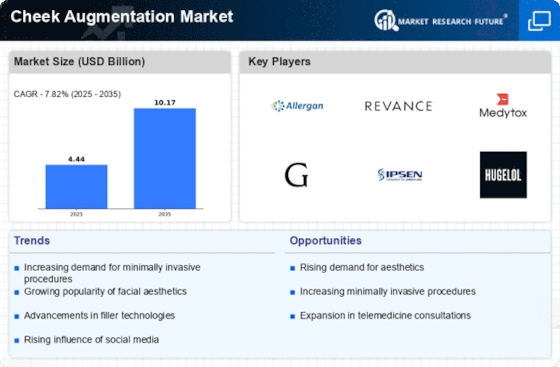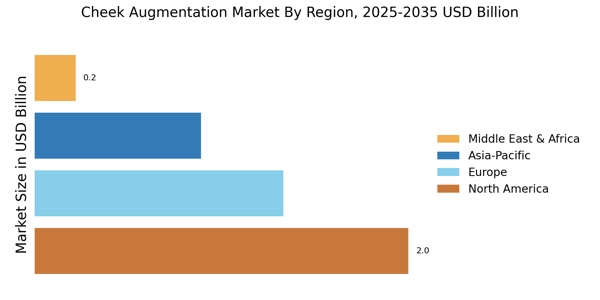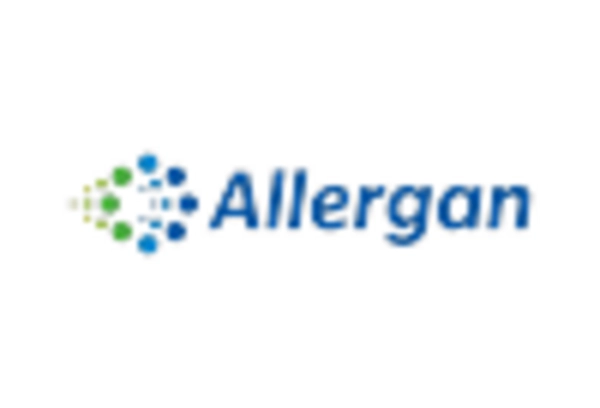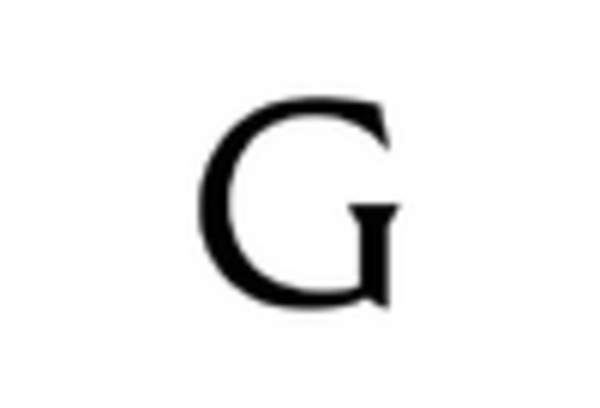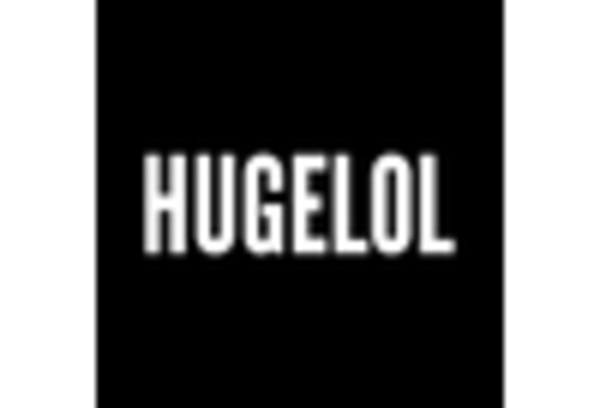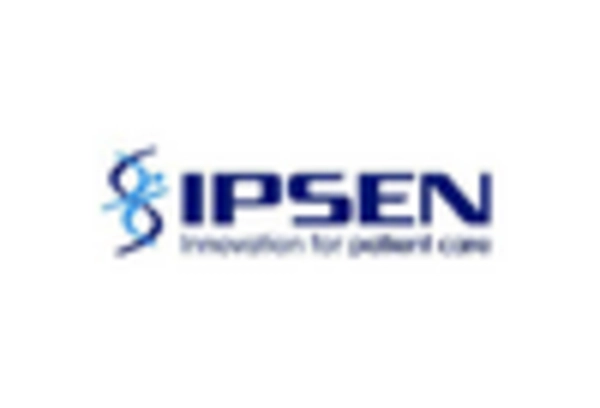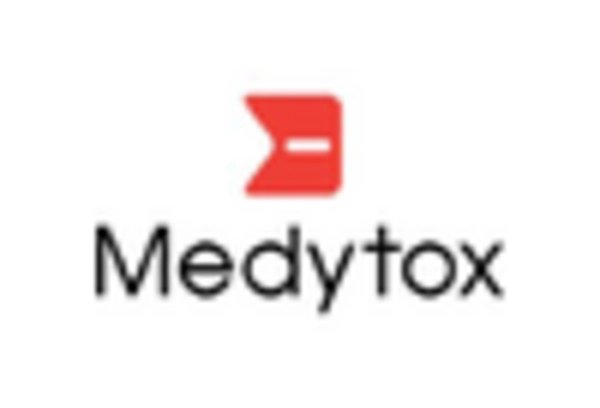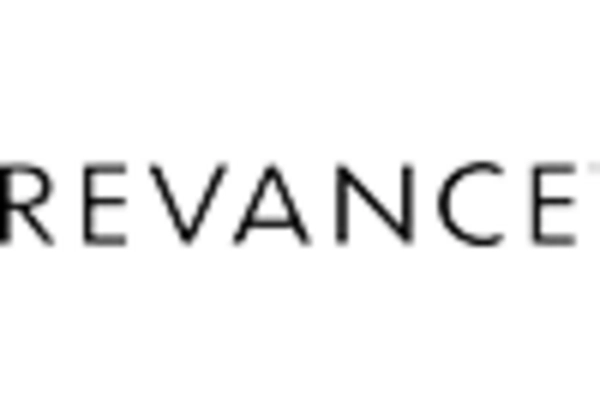Growing Acceptance of Cosmetic Procedures
The Cheek Augmentation Market benefits from a growing acceptance of cosmetic procedures across various demographics. As societal norms evolve, more individuals are embracing the idea of enhancing their appearance through surgical and non-surgical means. This shift in perception is particularly evident among younger generations, who are more open to exploring aesthetic options. Market Research Future indicates that the increasing normalization of cosmetic enhancements is leading to higher rates of procedure adoption. Additionally, educational campaigns aimed at demystifying these treatments contribute to this acceptance. As the stigma surrounding cosmetic procedures diminishes, the Cheek Augmentation Market is poised for continued growth, attracting a diverse clientele seeking to enhance their facial aesthetics.
Increasing Demand for Aesthetic Enhancements
The Cheek Augmentation Market is experiencing a notable surge in demand for aesthetic enhancements. This trend is largely driven by a growing societal emphasis on physical appearance and self-image. As individuals increasingly seek to enhance their facial features, cheek augmentation procedures have gained popularity. According to recent data, the market for facial aesthetics is projected to reach substantial figures, indicating a robust growth trajectory. This demand is not limited to any specific demographic, as both younger and older populations are seeking these enhancements. The rise in disposable income and the willingness to invest in personal appearance further fuel this trend, suggesting that the Cheek Augmentation Market will continue to expand as more individuals prioritize aesthetic procedures.
Rising Disposable Income and Consumer Spending
Rising disposable income levels are a significant driver for the Cheek Augmentation Market. As individuals experience increased financial freedom, they are more inclined to invest in personal appearance and wellness. This trend is particularly pronounced in emerging markets, where economic growth has led to a burgeoning middle class with disposable income to spend on aesthetic procedures. Market data suggests that as consumer spending on beauty and wellness continues to rise, the demand for cheek augmentation is likely to follow suit. This correlation indicates that the Cheek Augmentation Market will benefit from the economic empowerment of consumers, leading to a sustained increase in procedure uptake and market expansion.
Influence of Celebrity Culture and Social Media
The Cheek Augmentation Market is significantly influenced by celebrity culture and social media platforms. As public figures showcase their enhanced features, there is a corresponding increase in consumer interest in similar procedures. Social media serves as a powerful tool for promoting aesthetic treatments, with influencers often sharing their experiences and results. This visibility has led to a shift in beauty standards, where enhanced cheekbones are increasingly viewed as desirable. Market data suggests that procedures related to facial aesthetics, including cheek augmentation, have seen a rise in inquiries and bookings following high-profile endorsements. This trend indicates that the Cheek Augmentation Market is likely to continue thriving as social media remains a dominant force in shaping consumer perceptions.
Technological Advancements in Augmentation Techniques
Technological advancements play a pivotal role in shaping the Cheek Augmentation Market. Innovations in techniques and materials have led to safer and more effective procedures. For instance, the introduction of minimally invasive techniques has made cheek augmentation more accessible and appealing to a broader audience. Data indicates that the use of advanced fillers and biocompatible materials has increased patient satisfaction rates significantly. Furthermore, the development of 3D imaging technology allows for personalized treatment plans, enhancing the overall experience for patients. As these technologies continue to evolve, they are likely to attract more individuals to the Cheek Augmentation Market, thereby driving growth and expanding the range of available options.


